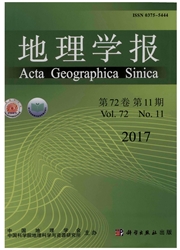

 中文摘要:
中文摘要:
村域是中国农村社会经济活动的基本单元,开展村域发展综合研究具有重要的理论和实践价值。本文基于对黄淮海平原3个典型县区内5个代表.胜村域在过去30年的发展历程及影响因素的系统考察,探讨传统农区农业型村域转型发展的过程特征与内在机理。研究发现:①在经济基础、人力资本和社会资本等内源性影响因素以及制度安排、市场需求和专业技术等外源性影响因素的综合作用下,案例村域大致经历了缓慢发展、逐渐起步、转型发展3个阶段。②案例村域转型发展过程的共性特征包括:重视民众参与;以能人为关键主体,着力实现内发动力与外发动力的统筹协调;日益重视抢占产业价值链的高附加值环节;创新是村域发展的力量源泉;战略、规划及行动力是村域发展的重要支撑;村域发展是一个自组织、网络化的动态过程。③其内在机理可归纳为:村民是村域发展的主体,能人是村域发展的核心因素,能人基于对村域自身资源禀赋、发展意愿、市场供需、政策导向、外域经验的洞察,着力激发内部动力、整合外部动力,共同构建协作组织、开展学习创新、制定发展战略、发展社会分工、参与市场竞争,切实推进村域自然一生态结构、技术一经济结构、制度一社会结构的优化,进而促进村域转型发展。在工业化、城镇化快速推进的新时期,为加速传统农区的村域转型发展和城乡一体化,应注重村域生产体系和城镇生产体系的要素融通、信息互享、产业融合、功能互补。
 英文摘要:
英文摘要:
China's agriculture and rural development have made great achievements since the reform and open-door policy was initiated. However, it can be seen clearly that agricultural foundation of China is still weak, rural development is still lagging behind, and the increase of farmers' incomes is still unstable. Village is definitely the main battlefield of solving problems related to farmers, agriculture and rural areas (so called "San Nong Wen Ti" in Chinese) and building new countryside, so it is of great theoretical and practical value to carry out studies on the evolutionary process and dynamic mechanism of village development. This study aims to explore the evolutionary processes, common features and general mechanism of village development in the Huang-Huai-Hai Plain, a representative of China's traditional agricultural regions, based on systematic analysis of development history and mechanism of five villages in three counties with different types of rural development. The main contents and results were summed up as follows: (1) Factors that influence village development. Geographical location, economic basis, resource and environment endowments, social capital and human capital are internal influencing factors; macroeconomic environment, institutional arrangement, market demand, professional techniques and government support are external ones; accidental factors from interior or exterior village may catalyze, lubricate or block village development. (2) Common features of village development. Grassroots participation is the core concept and basic principles that should be adhered to during the course of village development; the integration of internal and external motivation is the objective needs of village development and rural elites play an important role during the process, in particular, they are usually the key actors of motivating and integrating the desire of internal and external participants; to seize high value-added part of value chain is the strategic orientation of village
 同期刊论文项目
同期刊论文项目
 同项目期刊论文
同项目期刊论文
 Analysis of the Relationship Between Drought-Flood Disasters and Land-Use Changes in West Jilin, Chi
Analysis of the Relationship Between Drought-Flood Disasters and Land-Use Changes in West Jilin, Chi International Conference on Land Use Issues and Policy in China under Rapid Rural and Urban Transfor
International Conference on Land Use Issues and Policy in China under Rapid Rural and Urban Transfor 期刊信息
期刊信息
